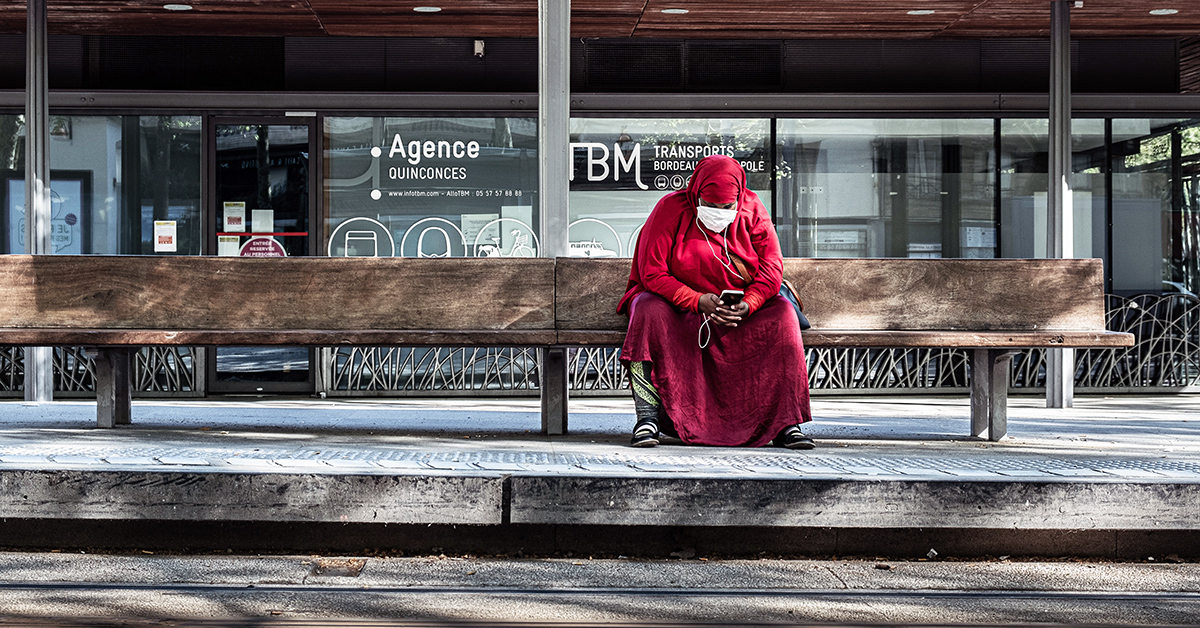 In this guest contribution, our professor Apen Ruiz reflects on the current COVID-19 crisis from a feminist perspective and explains how feminist pedagogies have allowed her to reframe this situation of abnormality and exceptionality. Apen Ruiz has a PhD in anthropology, her current research interest lies in the interactions between heritage and communities with a focus on how gender needs to be introduced in every phase of research. She teaches the course Gender, Space and Culture at our Master of International Cooperation Sustainable Emergency Architecture.
In this guest contribution, our professor Apen Ruiz reflects on the current COVID-19 crisis from a feminist perspective and explains how feminist pedagogies have allowed her to reframe this situation of abnormality and exceptionality. Apen Ruiz has a PhD in anthropology, her current research interest lies in the interactions between heritage and communities with a focus on how gender needs to be introduced in every phase of research. She teaches the course Gender, Space and Culture at our Master of International Cooperation Sustainable Emergency Architecture.
Usually, I teach international students as part of the Master of International Cooperation Sustainable Emergency Architecture at UIC Barcelona, and also young students from the United States, who come to Barcelona with the Study Abroad program. These students left for the United States some days before the official confinement in Barcelona began, and since then I had to reorient all classes to online teaching.
In this abnormal situation we live, I continue my teaching, but like many other professors I had to rethink the meaning of teaching. Although it is a privilege that I can work from home, I am very sad about not seeing the students, sad to not listen to their voices or observe their faces, their smiles or their yawns. It is difficult to prepare classes and request assignments and examinations as if everything was normal, because this situation is not normal at all. I know that a lot of students that returned to their North American cities are also having a hard time, just as we are.
As a teacher, I always try to bring daily realities inside the classroom, and I like that what we learn inside the classroom becomes part of the everyday lives of students. This often occurs at one of the classes that I impart about “gender issues.” When the lockdown began and my virtual teaching started I thought that the best would be that students wrote their final paper on how the COVID-19 pandemic is crossed by gender, class and race (instead of writing about Gender issues in Spain, because they were not in Spain anymore). Working with feminist pedagogies has allowed me to reorient this situation of abnormality and exceptionality in a moment of feminist reflection.
I would like to share with you some of the resources we work with in class and that during these moments of social distance – although they come from different parts of the world – encourage me to see how other women and feminist groups from different areas of the world are living this abnormal situation with similar approaches to ours.
For example, the Center of Feminist Foreign Policy of London has published a page with resources to think the pandemic from a feminist and intersectional perspective. Here you will be able to find some articles that reflect on how the national and international policies concerning the COVID-19 are constructed upon patriarchal racist and sexist mindsets. For instance, you will be able to find an article by the well-known peace and anti-war activist Cynthia Enloe about the dangers of thinking that the emergency of the COVID situation has to be solved as a war. Other articles make visible, as we are doing in Spain, that the confinement is affecting women in terms of the overload of care work as well as exposure to sexual violence. You will also find a couple of articles that remind us how during the epidemic of Zika and Ebola scholars and humanitarian practitioners were already mentioning the necessity to incorporate a feminist perspective in the debates about global health and politics of risk prevention. This page also announces that the well-known journal Feminist Review is offering open access to one of the volumes about feminist methodologies. In sum, this is a great resource to incorporate a feminist and interdisciplinary perspective that can benefit our understanding of the complex impacts of COVID and our teaching materials.
Apen Ruiz
Photo by Clément Falize on Unsplash

